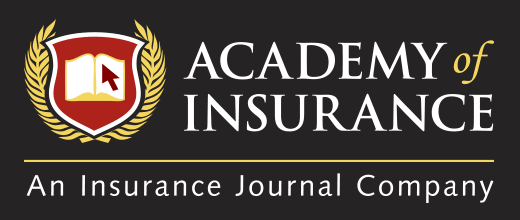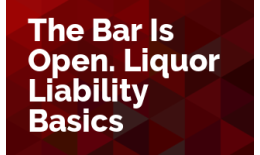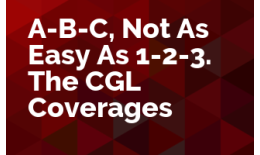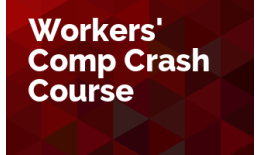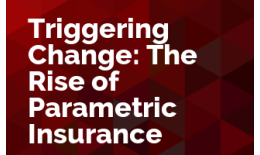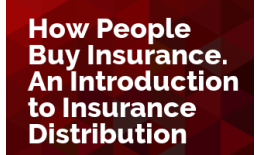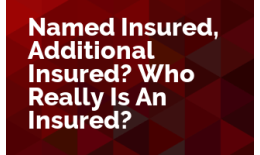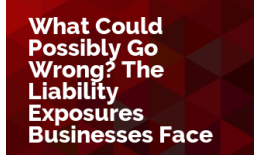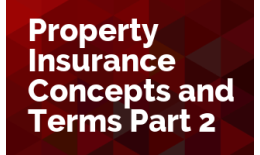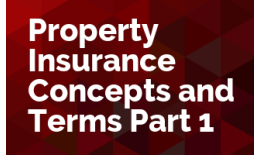Insurance 101
Whether you're new to insurance or not, everyone needs time spent with the fundamentals of insurance. That's what these classes are about.
You might need to learn the basics of commercial auto coverages or errors and omissions coverage. We have those classes. Maybe you need to learn how to read a policy so that your clients know what is covered and what isn't. We have classes for that. Maybe you don't understand why the underwriters ask so many questions about buildings. We have classes for that.
These classes are perfect to supplement your new hire's licensing class. We all know that the license exam doesn't teach us everything that we need to know. That's why we have these classes here for you.
The Bar Is Open: Liquor Liability Basics
Host liquor is included, right? Sure. We know that it is, but do we know why? What if the insured needs more than host liquor? Or what about those times when an insurer wants to further restrict liquor liability coverage? This session is all about the insurance implications from when the adult beverages begin to flow. It’s part of our New To Insurance series so you know that it’ll be a fast-paced hour.
A-B-C, Not As Easy As 1-2-3. The CGL Coverages
When many people think about CGL coverage, they think about coverage for bodily injury and property damage, but there's more to it. In this session, Academy Director, Patrick Wraight will cover the highlights of coverage on the ISO CGL coverage form (CG 00 01).
Workers' Comp Crash Course
In this eleventh installment of our New To Insurance series, Academy Director, Patrick Wraight will discuss Workers' Compensation insurance. This is geared toward those who are new to the topic. We will introduce concepts such as the sole remedy and monopolistic states. Join us live and get a crash course on the basics of Workers' Comp.
Bop It! Bringing The ISO Businessowners Policy to Center Stage
Sometimes the insurance world tries to do something that makes life easier for the client and that's the purpose of the BOP. The problem? Even in making things easier, things aren't easy. This class will examine the ISO BOP and MicroBOP, including which clients these might work for and the major coverage details.
Triggering Change: The Rise of Parametric Insurance
Parametric insurance doesn't work like other insurance policies. It pays based on a triggering event, based on the specifics of the policy. Join us as Dr. Brenda Wells and her RMI team at ECU bring us this timely class all about parametric insurance.
How People Buy Insurance. An Introduction to Insurance Distribution
In this tenth installment of our New To Insurance series, Academy Director, Patrick Wraight will discuss how people buy insurance, including why most people (including insurance people) need an agent, what the difference between an agent and a broker is, and the rise of app-based agencies. Join us live as we deal with how people buy insurance and how it's changed over the years.
Named Insured, Additional Insured? Who Really Is An Insured?
Liability policies deal with an unnamed third-party who submits a claim for damages that happened because of something that an insured is responsible for. So that means that we need to be able to identify who qualifies as an insured since it can be complicated.
Join us as Academy Director, Patrick Wraight, brings this next session of the New To Insurance series, all about who is an insured on a CGL policy.
What Could Possibly Go Wrong? The Liability Exposures Businesses Face
It doesn't matter what the business is, something could go wrong. Someone can slip and fall. A customer calls because the lawn care team ran over and destroyed six sprinkler heads. And the list goes on from there. This session is all about what could go wrong and how businesses and their trusted insurance professionals can identify what can go wrong before they even have conversations about the insurance that they might need.
Join us as Academy Director, Patrick Wraight brings this New To Insurance session.
Property Insurance Concepts and Terms Part 2
Insurance has a language all its own. Many of us simply smile and nod when we don’t understand a term. Some are ambitious enough to try and remember the terms they didn’t know and look them up later. A few brave souls will actually ask what an unfamiliar term means. We intend to begin to de-mystify the insurance language in this session.
Join us as Academy Director, Patrick Wraight brings the second part of a two-part introduction to these critical insurance concepts and terms.
Property Insurance Concepts and Terms Part 1
Insurance has a language all its own. Many of us simply smile and nod when we don’t understand a term. Some are ambitious enough to try and remember the terms they didn’t know and look them up later. A few brave souls will actually ask what an unfamiliar term means. We intend to begin to de-mystify the insurance language in this session.
Join us as Academy Director, Patrick Wraight brings this first of a two-part introduction to these critical insurance concepts and terms.
